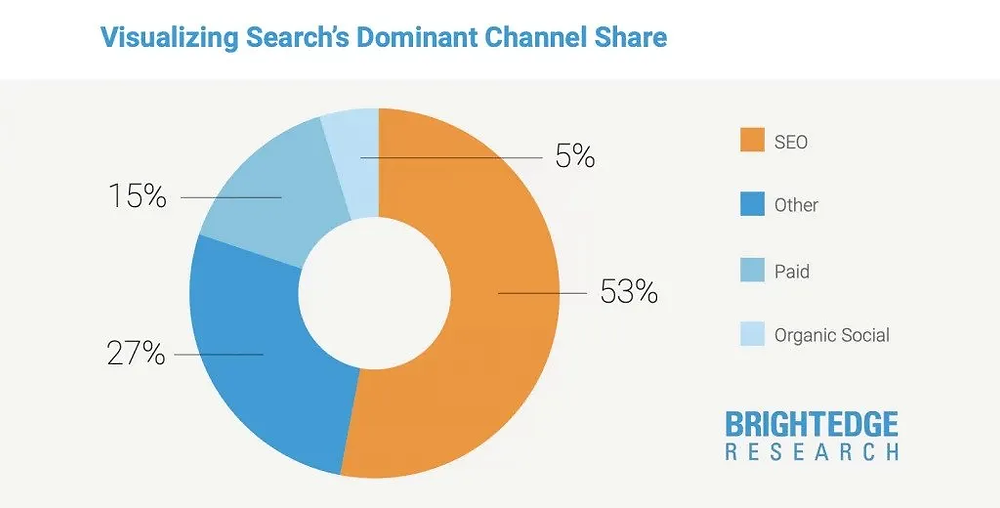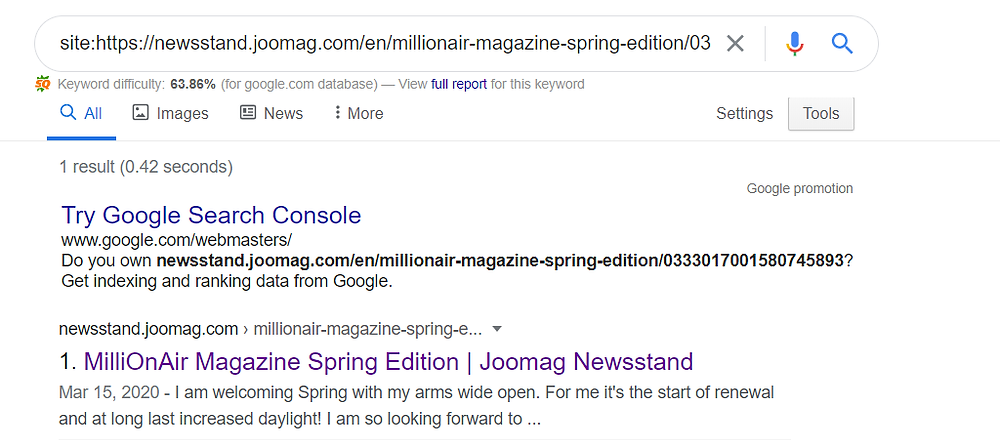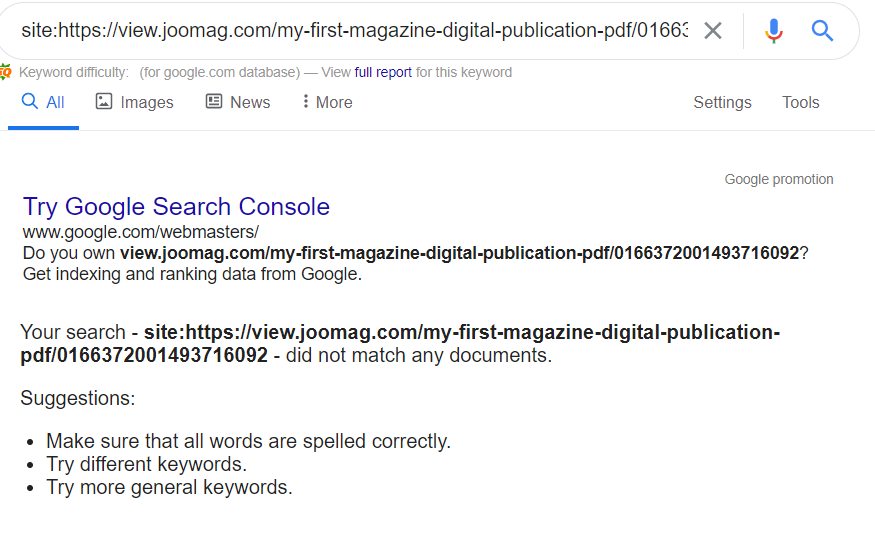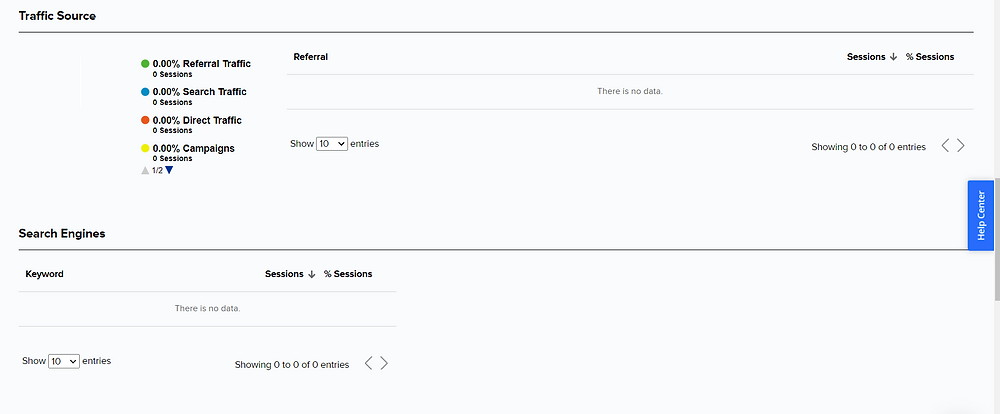
What is SEO?
Search Engine Optimization is the process of increasing the visibility of web content on search engines. In a nutshell, it makes your website more attractive to search engines so people can find it easily. Ranking higher on search engines means your content is more visible to users who are searching for keywords related to your industry, product, or brand.
Why is SEO so important in 2020?
It’s all about discoverability. SEO increases the quantity and quality of traffic, helping businesses put their brands in front of more people. It’s no surprise that people rely on search engines for many different things. We’re always using Google to check for updates on the latest news, for example. And with so much happening in the world today, finding information quickly (Google can churn out millions of results within 0.20 seconds) is really, really important.
Everything’s better when it’s organic, and that includes web traffic. In fact, organic search is responsible for more than half of all site traffic. It’s a critically important revenue source for nearly all business sectors. 2019 showed us that organic search usage eclipsed every other channel in terms of growth. Both paid and organic search pulled the most traffic for companies last year, which means businesses shouldn’t shy away from SEO and exploring new ways to convert potential customers. 2020 has already proven to be a wildly unpredictable year, but there is one constant: SEO’s popularity continues to surge as organic search outpaces other channels (see graph below).

www.brightedge.com
Staying relevant in a crowded digital landscape was never easy. Unfortunately, the COVID-19 pandemic only made things worse. Things aren’t “business as usual” anymore and brands are now working overtime to maintain a strong online presence throughout the pandemic. SEO specialists and content marketers alike have to rethink the customer experience and prioritize their messaging because building trust with audiences is more important than ever before. With more and more physical stores closing their doors for good, SEO has become a critical component for online success. Consumers are relying on the internet for their daily needs, and brands need to have effective SEO strategies in place to meet them.
Joomag provides the best SEO experience for marketers and publishers.
FAQs
1. How long does it take for search engines to index and show my magazine on Search Engine Results Pages (SERPs)?
Indexing is the process of adding web pages into Google search. Successfully indexing a website, page, or publication can take anywhere from 4 days up to 6 months. Many factors (like popularity, crawlable content, and overall structure) determine how quickly a magazine is indexed by Google. There’s no set time limit.
2. How can I check if my magazine is indexed and available on SERPs?
To check if your magazine is already indexed and available on search engines, simply add
“site:” in front of your magazine’s URL and hit “Enter,” like this:
site:https://newsstand.joomag.com/en/millionair-magazine-spring-edition/0333017001580745893
If Google identifies your magazine and crawled it already, a list of results should pop up. Here’s an example:

If Google can’t find anything, no relevant search results will appear. You’ll get something like this instead:

3. How can I make Google index my publication faster?
As mentioned before, you can’t influence or control the process. But to get some valuable indexing and ranking data, we recommend that you submit your magazine’s URL to the Google Search Console. You can do so via Google Tag Manager (here’s how to integrate Joomag with Google Tag Manager).
After submitting your magazine’s URL to the Google Search Console, you’ll be able to check its indexation status with the help of Google’s URL inspection tool.
4. What happens if I delete my magazine from Joomag’s database? Will it still be available on SERPs?
Once you’ve deleted your magazine, it will take a few days for search engines like Google to remove its associated link from their caches. Joomag has no control over this process. We recommend waiting a few days to see if the link to your content is still live.
5. How can I hide my publication from appearing on SERPs?
Joomag lets you decide if you want your magazine to be crawled and indexed by search engines. Check the “Exclude this magazine from search engines index” box if you don’t want your content to appear on SERPs. Otherwise, your magazine will be automatically added to the queue for indexation as soon as you publish it with us.
6. Is my magazine visible on search engines if its privacy status is set to any of the following options?
-
-
Anyone with the link
-
Only People I Choose
-
Only People with a Password
-
If your magazine’s privacy status is set to one of the above, it won’t be submitted to search engines. However, it may appear on SERPs if its URL was shared by you or anyone else on the web.
7. Can my magazine be found on search engines if it is NOT set to “Live”?
No, your magazine can’t be discovered on search engines if it isn’t set to “Live.” To make it discoverable, press the “Go Live” button when publishing your content.
8. Do magazines I create use “nofollow” or “dofollow” links?
All links in magazines created with Joomag are automatically set to “dofollow”. By adding a “nofollow” tag to a specific link in your magazine, you’re instructing search engines to not count links to other pages as “votes” in favor of your content. As long as you don’t add an extra “nofollow” tag to a link, it is counted as “dofollow.”
9. How do I improve my magazine’s ranking for specific keywords?
To get your magazine to rank higher on SERPs for specific keywords, you’ll need to optimize your content for those keywords. Always follow these 3 steps:
- Include keywords in your magazine’s title.
- Include keywords in the magazine’s description.
- Use keywords in headlines and in the content itself.
You can optimize your publications with the help of Joomag’s SEO tool. For detailed instructions, please refer to this blog post.
Warning: Search engines are getting smarter. They’ll know if your content is packed with spammy keywords, links, and text. So make sure you properly optimize your magazine for readers and search engines!
10. How do I check to see which keywords are driving traffic to my magazine from SERPs?
To see which keywords bring organic traffic to your magazine, you can review the Keyword report provided by Joomag’s analytics tool. Here you can also view the percentage of traffic coming from search.

11. How do I improve the visibility of my magazine on SERPs and get it ranked higher?
To help search engines find and rank your magazine on SERPs, start actively promoting your magazine. Here are some tips:
-
-
Write quality content that people find valuable.
-
In your content, only add links that are relevant and add value to the content.
-
Actively share and promote your magazine on social media channels like Facebook, Twitter, Instagram, Pinterest, and Linkedin.
-
Build links to your magazine from valuable and relevant sources. If you own a fashion magazine, build links to it from popular fashion blogs and websites. Share your links on fashion forums and discussion sites. Write relevant comments to popular posts and share your magazine links in the comments section.
-
Embed your magazine on your own website.
-
Promote your magazine through email marketing campaigns.
-
Encourage your readers to share your magazine.
-
Publish your magazine on digital newsstands. Some, like Joomag’s, are extremely popular.
-
For more information on how to optimize your digital magazine for search engines, check out our “Search Engine Optimization for your Digital Publications” blog post.


